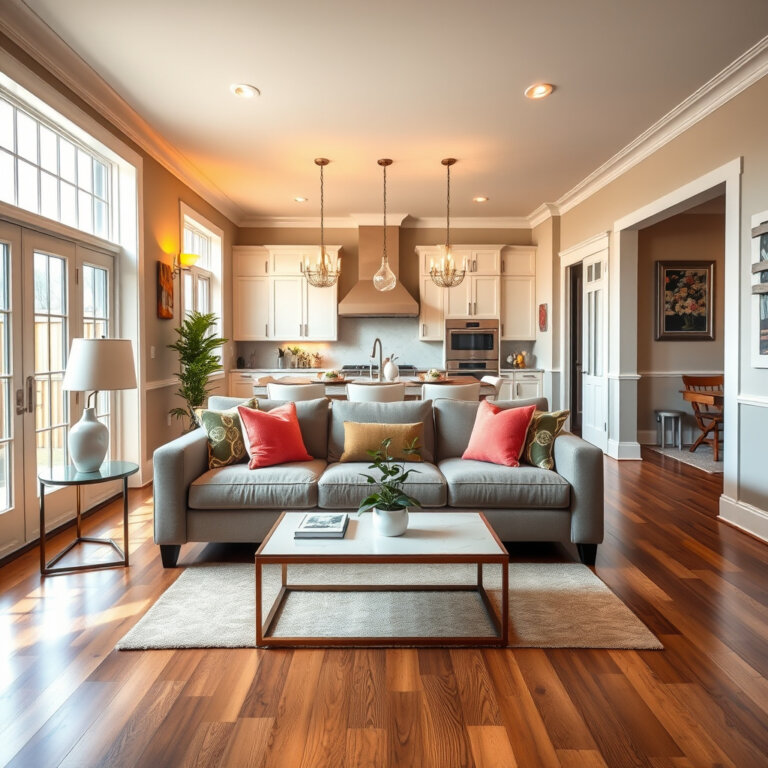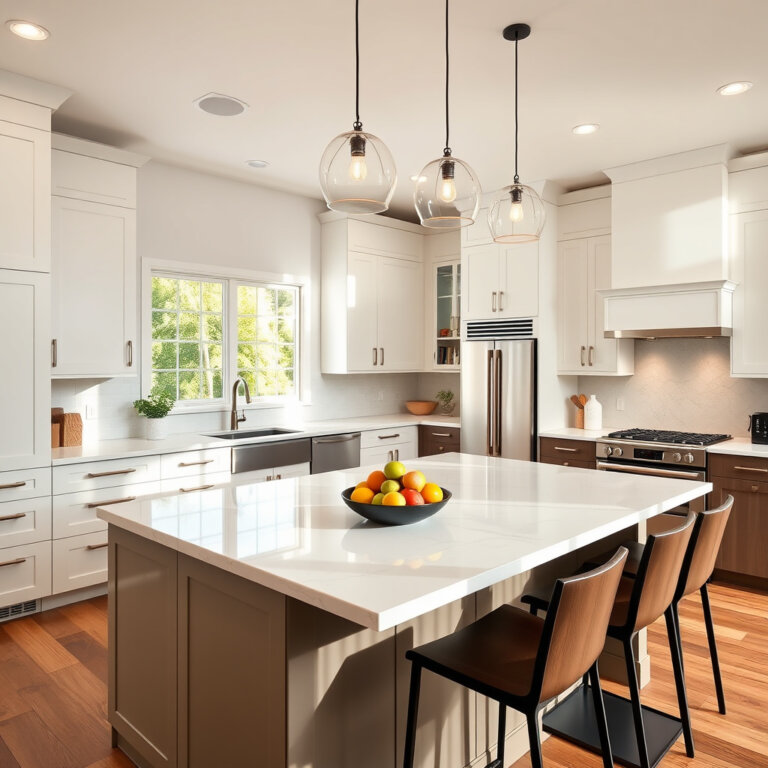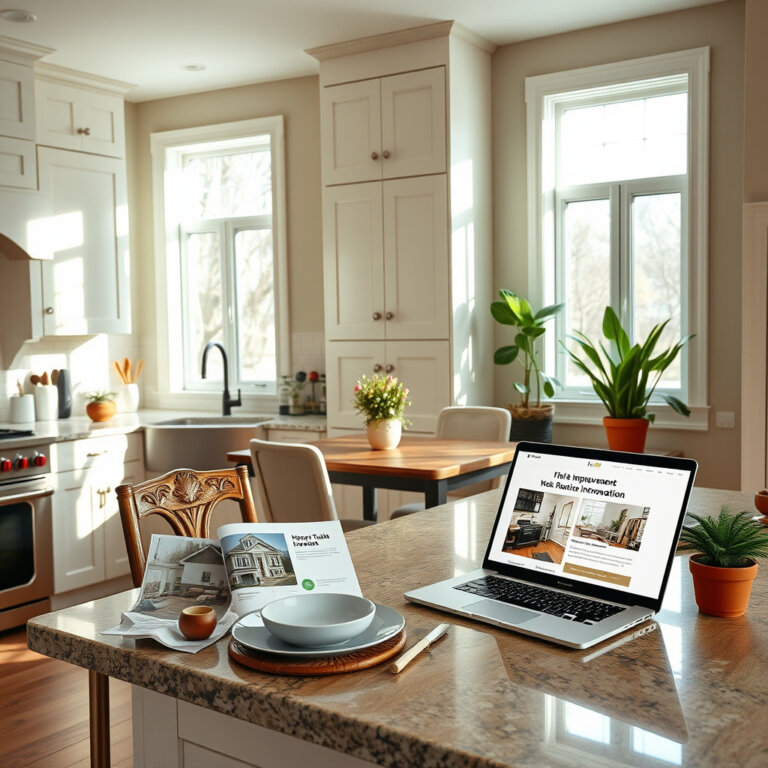Trusted home builders Massachusetts are reliable contractors who ensure quality construction and renovation services in the state.
Are you searching for trusted home builders in Massachusetts?
In this post, we will explore essential tips and insights to help you find reliable contractors for your construction or renovation projects.
You’ll learn about the key factors to consider when choosing a builder, including licensing, experience, and customer reviews. By the end of this guide, you’ll be equipped with the knowledge to make an informed decision and ensure a successful project.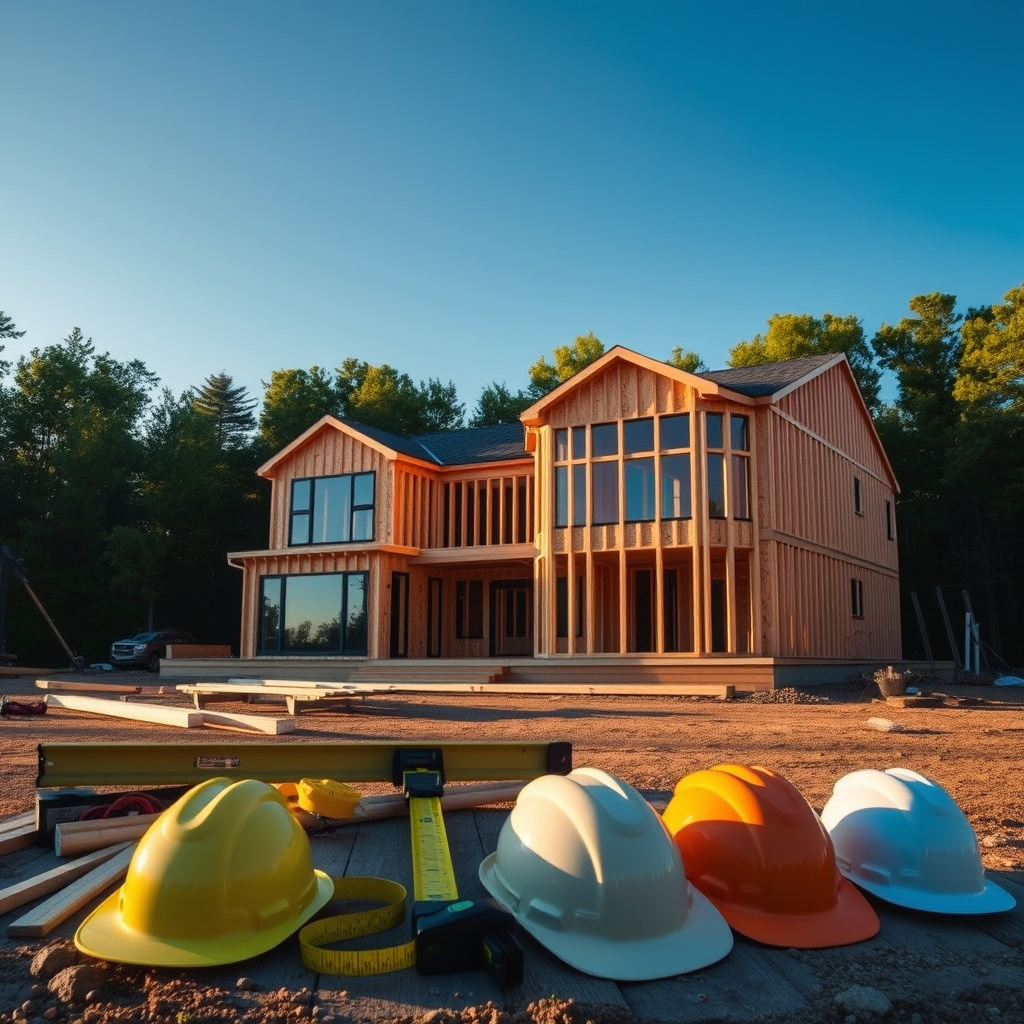
Top Qualities to Look for in Home Builders
When embarking on the journey of building your dream home, choosing the right builder is crucial. With so many options available, it’s important to identify the qualities that will ensure your project is a success. Here are some key traits to consider when searching for trusted home builders Massachusetts.
Experience and Expertise
One of the first aspects to evaluate is the builder’s experience. A company with a solid track record understands the nuances of construction and has likely faced a variety of challenges. Experienced builders are better equipped to handle unexpected issues that may arise during the project. Moreover, their familiarity with local building codes and regulations—such as construction permit requirements Massachusetts—ensures compliance and a smoother process.
Strong Reputation
Researching a builder’s reputation can provide invaluable insights. Look for testimonials and reviews from previous clients. A builder who consistently delivers quality workmanship and meets deadlines is more likely to be a reliable choice. Additionally, don’t hesitate to ask for references. Speaking directly to past clients can shed light on the builder’s communication style and reliability, which are critical during the construction process.
Transparent Communication
Effective communication is essential in any construction project. Your builder should be willing to discuss every aspect of the project, from timelines to budgets and potential challenges. A builder who encourages open dialogue helps build trust and ensures that you are always informed about the progress of your home. If you’re considering a home addition permit Boston MA, clear communication about permits and regulations will be particularly important.
Quality Craftsmanship
The quality of materials and craftsmanship can significantly impact the longevity and aesthetics of your home. When searching for builders, inquire about the materials they use and their approach to construction. A reputable builder will take pride in their work and aim for the highest standards. This attention to detail can also be reflected in additional services, such as kitchen remodels. Understanding the cost of kitchen remodel in Worcester MA can help gauge the builder’s pricing strategy.
Flexibility and Customization
Every homeowner has unique needs and preferences. A good builder should be flexible and willing to accommodate your specific requests. Whether it’s a custom layout or unique design features, your builder should work with you to create a space that reflects your vision. This flexibility is especially important in today’s market, where personalized homes are highly valued.
Licensing and Insurance
Before signing any contracts, it is essential to confirm that your builder is a licensed contractor Massachusetts. Licensing ensures that the builder meets specific industry standards and is legally qualified to perform the work. Additionally, having adequate insurance protects both you and the builder from potential liabilities during the construction process.
Post-Construction Support
A reliable home builder will not only focus on completing the project but will also offer support after construction is finished. This may include warranty options or assistance with any issues that arise. Knowing that your builder stands by their work can provide peace of mind as you settle into your new home.
Final Thoughts
Finding the right builder involves careful consideration of various factors. By prioritizing experience, reputation, communication, quality craftsmanship, flexibility, licensing, and post-construction support, you can make an informed decision. As you navigate the permit application process Boston, remember that the right builder will serve as your partner in creating a home that you and your family will cherish for years to come.
Understanding the Construction Process: A Step-by-Step Guide
Embarking on a construction project can feel overwhelming, but breaking it down into manageable steps can help simplify the process. This guide aims to shed light on each phase, ensuring you feel informed and confident as you move forward with your home project.
1. Planning and Design
The first step in the construction process is careful planning and design. This is where you define your vision and set clear goals. Consider what you want to achieve, whether it’s a new home, a home addition permit in Boston MA, or a remodel of a kitchen. Engage with home renovation contractors near me to help translate your ideas into tangible plans. During this phase, it’s also crucial to research any construction permit requirements in Massachusetts. Understanding what permits you need can save you time and headaches later on.
2. Budgeting
Once your plans are in place, the next step is establishing a budget. Determine how much you’re willing to spend and identify potential financing options. When thinking about costs, be sure to include everything from permits to materials and labor. For instance, if you’re considering the cost of kitchen remodel in Worcester MA, gathering estimates from various licensed contractors in Worcester MA can provide a clearer picture of your financial landscape.
3. Choosing the Right Contractors
Selecting the right team is critical to your project’s success. Look for trusted home builders Massachusetts who have a proven track record. Check reviews, ask for references, and ensure they hold the necessary licenses. This step is vital because a general contractor Massachusetts will not only oversee the project but also coordinate with other professionals, ensuring everything runs smoothly.
4. Securing Permits
Before any physical work begins, you must secure the appropriate permits. This can involve navigating through the permit application process in Boston or understanding how to apply for a building permit in your area. Your contractor should assist you in this phase, ensuring you meet all building code compliance Massachusetts requirements. This is a crucial step to avoid any legal issues down the line.
5. Construction Phase
With everything lined up, it’s time to start the actual construction. Your licensed contractor Massachusetts will begin coordinating various construction services Massachusetts, including hiring subcontractors and scheduling inspections. Regular communication during this phase is key; stay in touch with your contractor to monitor progress and address any concerns that may arise.
6. Inspection and Quality Checks
As the project nears completion, inspections will take place to ensure everything adheres to safety standards and building codes. These checks are essential for validating that the work done meets the specifications outlined in your initial plans. If you’re looking to add features like a roof, consider reaching out to the best roofing companies in Newton MA for a final inspection of the roofing work.
7. Final Touches and Handover
Once the construction is complete, it’s time for the final touches. This includes any last-minute adjustments and cleaning up the site. Afterward, you’ll have a walkthrough with your contractor to ensure everything meets your expectations.
Understanding the construction process from planning to execution helps prepare you for the journey ahead. With the right team and a clear plan, your dream home can become a reality.
Navigating Permitting in Massachusetts: What You Need to Know
Navigating the permitting process in Massachusetts can feel overwhelming, especially for those embarking on home improvement projects. Whether you’re considering a small renovation or a major construction endeavor, understanding how to apply for a building permit is essential. This guide aims to simplify the process, ensuring you are well-prepared as you move forward with your project.
Understanding Permit Requirements
Before diving into your project, it’s crucial to familiarize yourself with the construction permit requirements Massachusetts has in place. Different types of projects may require different permits. For instance, if you’re planning a home addition permit Boston MA, specific documentation will be needed, including architectural drawings and site plans. It’s a good idea to check with your local building department to determine what specific permits apply to your project.
The Permit Application Process
The permit application process Boston typically involves several steps:
- Research Your Project: Understand what type of permit is required based on your project scope.
- Prepare Your Documents: Gather necessary documentation, including plans and specifications.
- Submit Your Application: File your application with the appropriate local authority, ensuring all information is complete.
- Wait for Approval: The review process can take time, so patience is key.
- Start Construction: Once approved, you can begin your project, keeping in mind that inspections may be required at various stages.
Common Challenges and Tips
Many homeowners encounter challenges during the permitting process. One common issue is the complexity of local regulations. It’s beneficial to work with licensed contractors in Worcester MA or a trusted general contractor Massachusetts who understands these requirements. They can help ensure that your project complies with local codes, reducing the risk of delays.
Additionally, understanding the average cost of a home addition in MA can help you budget appropriately for your project. Keep in mind that unexpected issues may arise, so having a financial cushion can be advantageous.
Working with Professionals
Engaging with home renovation contractors near me can significantly streamline the permitting process. Experienced professionals not only help with the technical aspects of your project but also assist in navigating the often-complex permitting landscape. Whether it’s finding the right licensed contractor Massachusetts or ensuring that the construction meets all necessary codes, their expertise can save you time and stress.
In conclusion, understanding the permitting process is a crucial step in any home construction or renovation project. By being proactive and seeking guidance from trusted professionals, you can navigate this process more effectively, paving the way for a successful project.
Budgeting for Your Home Project: Key Cost Factors
When it comes to planning a home project, understanding the budget is essential. Knowing the key cost factors can help you avoid unexpected expenses and keep your project on track. Whether you’re considering a kitchen remodel or a home addition, there are several elements that will influence the overall cost.
1. Project Scope
The first step in budgeting is to define the scope of your project. Are you looking to make minor updates, or do you want a complete overhaul? The more extensive the work, the higher the costs will be. For instance, the cost of kitchen remodel in Worcester MA can vary widely based on the materials you choose and the complexity of the design. It’s important to have a clear vision and communicate this with your licensed contractor Massachusetts to get an accurate estimate.
2. Materials and Labor
The choice of materials can significantly impact your budget. High-quality finishes may come with a higher price tag but can enhance the overall look and longevity of your project. Additionally, labor costs can vary depending on the expertise of the workers. Hiring a general contractor Massachusetts or specialized home renovation contractors near me can ensure that the work is done to a high standard, but it’s essential to factor in their fees as part of your overall budget.
3. Permitting Costs
If your project requires a home addition permit Boston MA, you’ll need to account for these costs in your budget. The permit application process Boston can be intricate, and understanding the construction permit requirements Massachusetts is crucial. Failing to secure the necessary permits can lead to fines or delays, so it’s wise to budget for these expenses at the outset.
4. Contingency Fund
No matter how well you plan, it’s wise to set aside a contingency fund for unexpected costs. This could range from 10% to 20% of your total budget. Issues such as hidden structural problems or changes in material prices can arise, especially in a project involving major renovations. Keeping a financial cushion will help you manage these surprises without derailing your project.
5. Design and Planning Fees
Don’t forget to include design and planning fees in your budget. Hiring an architect or a designer can add to your costs, but their expertise can be invaluable in optimizing your space. They can help ensure compliance with building code compliance Massachusetts, preventing future headaches.
6. Financing Options
Finally, consider your financing options. Whether you’re using savings, a home equity loan, or another method, understanding the interest rates and terms will help you create a more accurate budget. Consult with financial advisors to explore the best options for your situation.
By taking these key cost factors into account, you can create a realistic budget for your home project, ensuring it aligns with your vision while minimizing stress and financial strain. Remember, investing time in planning now will pay off in the long run, allowing your dream space to become a reality.
Questions to Ask Potential Home Builders
When embarking on the journey of building your dream home, the choice of a builder is crucial. To ensure you are selecting the right partner, it’s important to ask the right questions. Here are some essential inquiries that can help you gauge the suitability of potential home builders in your area, especially when searching for trusted home builders Massachusetts.
Experience and Credentials
Start by understanding the builder’s background. Ask questions like:
- How long have you been in the home building business? This gives you insight into their experience level.
- Can you provide references from previous clients? Speaking with past clients can reveal much about their working style and reliability.
- Are you a licensed contractor in Massachusetts? Ensuring they have the proper licensing is essential for compliance and quality assurance.
Project Management and Communication
Effective communication can make or break a project. Consider these questions:
- Who will be my main point of contact during the project? Knowing who to reach out to can streamline communication.
- How often will you provide updates on the progress? Regular updates help keep you informed and engaged throughout the process.
- What is your approach to handling unexpected issues? Understanding their problem-solving strategy can give you peace of mind.
Quality of Work and Materials
The quality of the final product is paramount. Ask about:
- What type of materials do you use? Inquire about the quality and sources of materials to ensure durability.
- Can you show examples of your previous work? Viewing past projects can help you assess their craftsmanship.
- Do you offer any warranties on your work? A warranty can provide assurance regarding the longevity of their work.
Budget and Pricing
Clarifying financial details upfront is key to avoiding surprises later. Questions to consider include:
- Can you provide a detailed estimate? A comprehensive estimate should outline all costs associated with the project.
- What payment schedule do you typically follow? Knowing when payments are due can help you manage your budget more effectively.
- How do you handle changes to the original plan or budget? Understanding their policy on change orders is crucial for financial planning.
Permitting and Compliance
Familiarity with local regulations is essential for a smooth building process. Don’t hesitate to ask:
- Are you knowledgeable about the construction permit requirements in Massachusetts? This can prevent delays related to permitting issues.
- How do you ensure compliance with local building codes? Ensuring that a builder adheres to regulations is vital for safety and legality.
Choosing the right builder involves thorough vetting and asking the right questions. By focusing on these areas, you can better ensure that your home building experience will be a positive one, leading to the creation of a space that truly reflects your vision. Whether you are considering a home addition permit Boston MA or discussing the cost of kitchen remodel in Worcester MA, having a clear understanding of your builder’s capabilities will make all the difference.
The Importance of Local Knowledge in Home Construction
When embarking on a home construction project, understanding the local landscape is crucial. This encompasses not just the physical environment but also the intricate web of regulations, building codes, and community preferences that can significantly impact your project. In Massachusetts, for instance, the construction permit requirements Massachusetts can vary widely from one town to another. It’s essential to work with a team that knows these nuances inside and out.
Understanding Local Regulations
One of the most significant advantages of hiring trusted home builders Massachusetts is their familiarity with local regulations. Each municipality has its own set of rules that govern construction projects. These can include zoning laws, setback requirements, and the specific criteria needed for obtaining a home addition permit Boston MA. A builder well-versed in these regulations can navigate the permitting process smoothly, saving you time and potential headaches.
- Knowledge of local zoning laws
- Expertise in the permitting process
- Awareness of building codes
Community Preferences and Architectural Styles
Local builders also have insights into what works aesthetically and functionally in specific neighborhoods. Each area has its unique character, and understanding these subtleties can help ensure that your home fits in rather than stands out for the wrong reasons. For example, if you are considering a kitchen remodel in Worcester MA, a local builder will know the most popular designs that resonate with the community, potentially increasing your home’s value.
Access to Reliable Local Resources
Choosing a local builder means they have established relationships with suppliers and subcontractors. This can be a significant advantage in terms of sourcing materials and labor. Whether you need a licensed roofing contractor Newton MA or are looking for the best roofing companies in Newton MA, a local builder can recommend trusted professionals who will deliver quality work. These connections often lead to better pricing and faster project timelines.
Adapting to Local Climate and Conditions
Local knowledge extends to understanding the physical environment. Massachusetts experiences a variety of weather conditions that can affect construction methods and material choices. Builders familiar with the area know how to select materials that withstand local climate challenges, ensuring your home remains safe and durable. For instance, they can guide you on the average cost of home addition in MA while suggesting materials that are both cost-effective and resilient.
Community Engagement and Support
Lastly, working with local builders fosters a sense of community. These professionals often engage with local organizations and are invested in the neighborhoods they serve. This connection can lead to a smoother construction process, as they understand the needs and expectations of local residents. If you’re considering starting a construction project, having a general contractor Massachusetts who is attuned to the local environment can make all the difference.
In the present landscape of home construction, the significance of local knowledge cannot be overstated. It is about more than just building a structure; it is about creating a home that aligns with the community, adheres to regulations, and stands the test of time.
Sustainable Practices in Home Building: Why They Matter
In the present day, as we become increasingly aware of our impact on the environment, sustainable practices in home building are more important than ever. These practices not only benefit the planet but also enhance the quality of life for homeowners. By integrating sustainability into the construction process, we can create homes that are efficient, cost-effective, and resilient.
The Benefits of Sustainable Home Building
When you choose to work with trusted home builders Massachusetts, you open the door to numerous advantages. Sustainable building techniques often lead to reduced energy consumption, which can result in significant savings on utility bills. By utilizing energy-efficient appliances, high-quality insulation, and renewable energy sources like solar panels, homeowners can drastically cut down on their energy costs.
Moreover, sustainable homes contribute to healthier living environments. Using non-toxic materials and proper ventilation systems can improve indoor air quality, making your home a safer place for your family. This is particularly vital in urban areas where pollution levels can affect health.
Choosing the Right Materials
Another essential aspect of sustainable home building is the selection of materials. Opting for locally sourced materials not only reduces transportation emissions but also supports the local economy. For instance, using reclaimed wood or recycled materials can add unique character to your home while minimizing waste. When working with a licensed contractor Massachusetts, it’s crucial to discuss material options that align with your sustainability goals.
Energy Efficiency and Design
Energy-efficient design plays a significant role in sustainable building practices. Incorporating features like passive solar design, which maximizes natural light and heat, can reduce reliance on artificial heating and cooling systems. Additionally, well-designed landscapes can enhance energy efficiency, providing shade in the summer and wind protection in the winter.
Regulatory Compliance and Permitting
Understanding the construction permit requirements Massachusetts is vital when embarking on a sustainable building project. Many municipalities encourage green building through incentives and streamlined permitting processes. For example, if you’re considering a home addition, a home addition permit Boston MA may come with guidelines that support energy-efficient designs. Familiarizing yourself with these regulations can help you navigate the permitting process more smoothly.
The Role of Professionals
Engaging with home renovation contractors near me who are experienced in sustainable practices can make a significant difference in your project. These professionals can guide you in selecting the best materials, design features, and energy systems that align with your sustainability vision. Their expertise ensures that your home not only meets your personal needs but also adheres to green building standards.
Long-term Savings and Value
Investing in sustainable home building may have higher upfront costs, but the long-term savings are compelling. Homes built with energy efficiency in mind often have a higher resale value. Prospective buyers are increasingly looking for homes that offer lower utility bills and a smaller carbon footprint. This trend suggests that sustainability isn’t just a passing fad; it’s becoming a standard expectation in the housing market.
In summary, adopting sustainable practices in home building is a choice that benefits both the environment and the homeowner. By partnering with the right professionals and focusing on energy efficiency, material selection, and regulatory compliance, you can create a home that is not only beautiful but also responsible and resilient in today’s ever-changing world.
The Future of Home Building in Massachusetts
As we look ahead, the landscape of home building in Massachusetts is evolving in exciting ways. The emphasis on sustainability, energy efficiency, and community-focused designs is shaping the way homes are constructed, making them not just places to live but also spaces that foster connection and environmental responsibility.
Embracing Sustainable Practices
In the present day, many licensed contractors in Massachusetts are prioritizing sustainable building practices. This shift is driven by a growing awareness of environmental issues and a desire to create homes that reduce our carbon footprint. Home builders are exploring innovative materials and techniques that promote energy efficiency. From solar panels to energy-efficient appliances, the future of home construction is about creating spaces that are both comfortable and environmentally friendly.
The Role of Technology
Technology is also playing a significant role in the transformation of home building. General contractors in Massachusetts are increasingly incorporating smart home technologies into their designs. These advancements not only enhance convenience for homeowners but also contribute to energy savings. Imagine controlling your home’s lighting, heating, and security systems from your smartphone—this is becoming a reality for many new homes.
Community-Centric Designs
The design of new homes is also shifting towards community-centric models. Builders are recognizing the importance of fostering connections among neighbors and creating spaces that encourage social interaction. This trend is evident in developments that incorporate shared green spaces, walking paths, and communal areas. Homeowners are looking for environments that promote a sense of belonging, making community-focused designs a priority for home renovation contractors near me.
Adapting to Regulatory Changes
Navigating the regulatory landscape is crucial for anyone involved in home building. Understanding construction permit requirements in Massachusetts is essential for keeping projects on track. Builders must stay updated on local codes and regulations, ensuring compliance while also meeting the creative demands of homeowners. The permitting process can be complex, but a knowledgeable licensed contractor Massachusetts can help streamline this process, making it more accessible for homeowners.
Cost Considerations
Budgeting for home projects remains a critical aspect of the building process. Homeowners are increasingly aware of the average cost of home addition in MA and are looking for ways to maximize their investment. With the rise in material costs and labor, it’s essential to work with builders who can provide transparent estimates and value engineering options. This approach helps homeowners make informed decisions that align with their financial goals while still achieving their dream homes.
Collaboration and Communication
Finally, the future of home building in Massachusetts hinges on collaboration and communication. Homeowners and builders are working more closely than ever to ensure that visions align. This partnership approach fosters trust and leads to successful project outcomes. Builders who prioritize open lines of communication and actively involve homeowners in the decision-making process are likely to stand out as trusted home builders Massachusetts.
As home building continues to evolve, staying informed about these trends and practices will empower homeowners to make choices that not only meet their needs but also contribute positively to their communities and the environment.
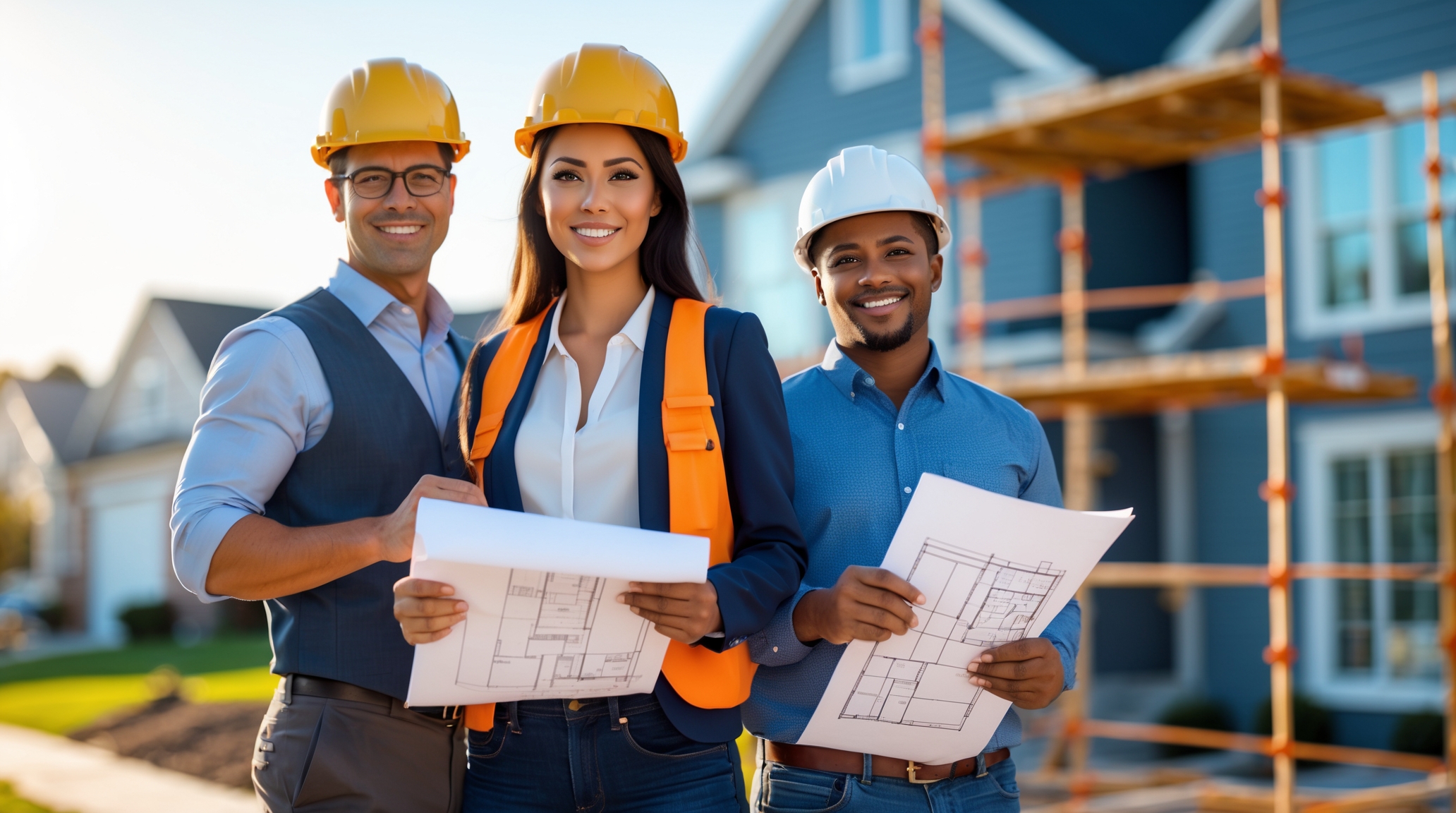
At Builders RD, our editorial team is made up of construction professionals, researchers, and local content strategists who specialize in home improvement, permitting, and contractor services across Massachusetts. We work closely with industry experts, licensed contractors, and municipal guidelines to deliver accurate, actionable content that helps homeowners, investors, and builders make confident decisions.
Our mission is to simplify the construction process through trustworthy guidance — from permit applications to hiring the right team — so you can build smarter, safer, and with full peace of mind.
— Builders RD Editorial Team

